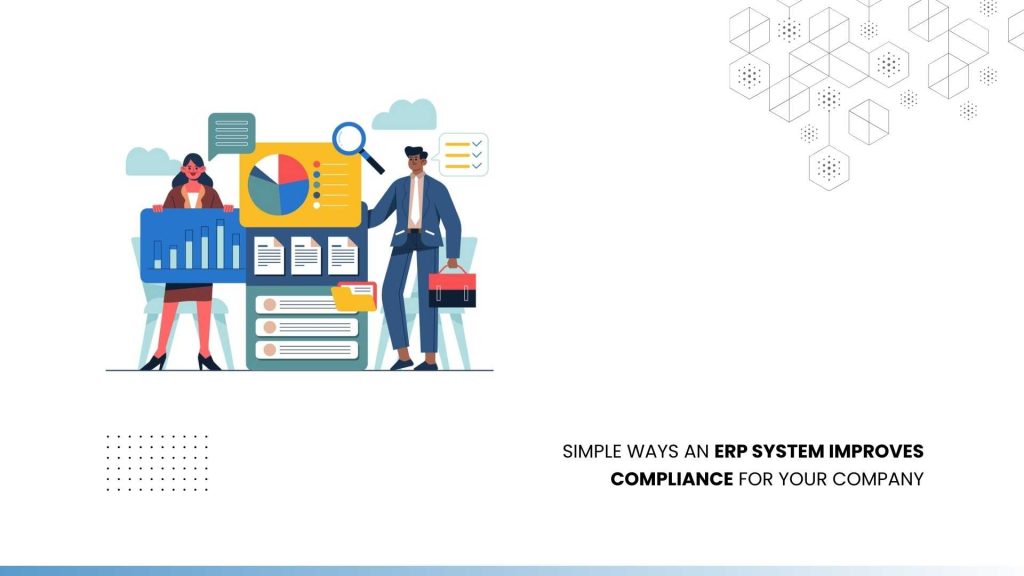Regulatory compliance involves a company adhering to the regulations established by governments and regulatory bodies. Various international regulatory entities, including governments and industry associations, create laws, policies, and standards to govern business operations in their regions.
Regulatory compliance affects companies of all sizes across various industries. For instance, most companies must adhere to tax regulations. Certain sectors, like manufacturing, financial services, and healthcare, face strict requirements.
Steps to Follow to Ensure Regulatory Compliance
Conduct an Initial Internal Audit:
Begin by thoroughly examining your current processes, systems, and practices to identify areas of non-compliance. This internal audit will provide a baseline understanding of your organization’s adherence to regulations.
Compliance Policies and Procedures:
Develop clear and comprehensive compliance policies and procedures tailored to your industry’s regulations. Document these protocols meticulously to ensure they are easily accessible and understandable for all stakeholders within your organization.
Provide Regular Compliance Training:
Equip your workers with the ability and skills required to maintain regulatory compliance. Offer regular training sessions to educate staff members on relevant regulations, policies, and best practices. This continuous education fosters a culture of compliance throughout your organization.
Utilize Technology Tools
Embrace technological solutions and software providers specializing in regulatory compliance. Implementing suitable tech tools streamlines compliance processes, enhances accuracy, and lowers the risk of errors. Ensure that the software providers you choose prioritize data security and compliance in their offerings.
Improve Regulatory Compliance With ERP
Regulatory compliance is vital for business operations, and integrating an ERP system can significantly enhance adherence to these regulations. Here are some tips to improve regulatory compliance through the use of an ERP system:
Centralized Data Management:
An ERP system centralizes data storage, enabling easy access, organization, and retrieval of critical information. This centralized repository fosters transparency and ensures compliance-related data is readily available for audits and reporting.
Automated Workflows and Processes:
ERP solutions streamline workflows and automate processes, reducing the risk of error and assuring consistency in compliance-related tasks. By automating routine compliance procedures, businesses can allocate resources more efficiently and mitigate the likelihood of compliance breaches.
Audit Trails and Data History:
Robust ERP systems offer comprehensive audit trails and maintain a detailed history of data transactions and changes. These features provide visibility into actions taken within the system, aiding in compliance audits and investigations. By tracking data lineage and changes, businesses can demonstrate accountability and adherence to regulatory requirements.
Regular Training and Documentation:
Continuous training programs and comprehensive documentation are essential for fostering an organization’s compliance culture. ERP systems can facilitate training initiatives by providing user-friendly interfaces and interactive tutorials. Maintaining detailed documentation within the ERP system also ensures compliance protocols are consistently followed and updated as regulations evolve.
conclusion
Acumatica Cloud ERP provides a complete solution to improve regulatory compliance in various industries. It enables organizations to simplify compliance procedures, reduce risks, and quickly adjust to changing regulatory demands through features like real-time visibility, centralized data management, and customizable workflows.
Its flexible architecture and robust features enable businesses to achieve greater transparency, accuracy, and efficiency in regulatory reporting, fostering stakeholder trust and ensuring long-term compliance success. With Acumatica, organizations can confidently navigate complex regulatory landscapes, ultimately driving sustainable growth and competitive advantage in the ever-changing business environment.

Vijay comes with a vast experience in ERP and enterprise solutions space with about 20 years of experience in various packaged application like Acumatica, SAP, Orion, Salesforce.com, SugarCRM and, SalesLogix.

